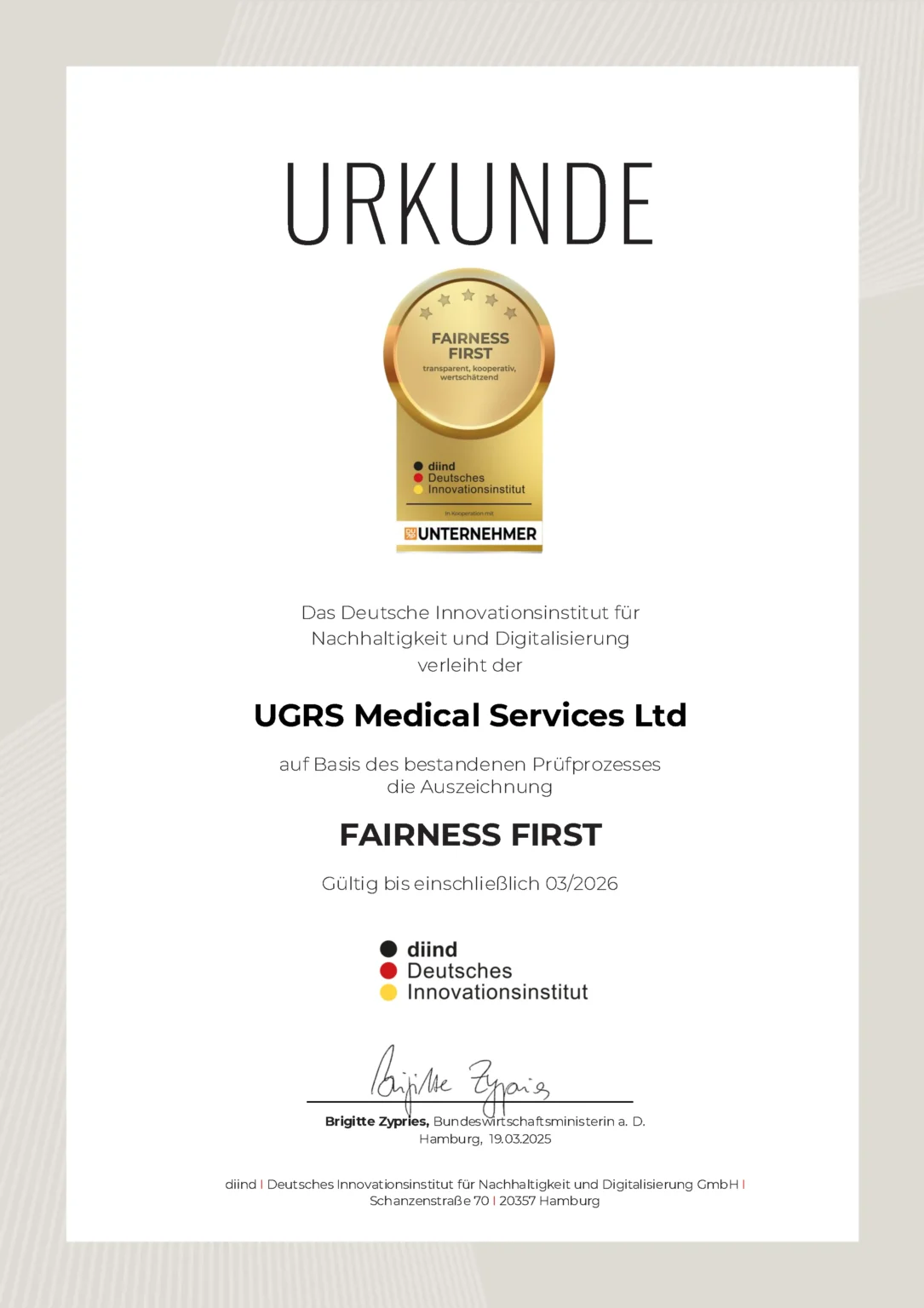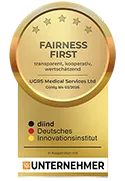Home » UGRS.Blog – Latest Topics & Insights on Urology and Penis Enlargement » How do I recognize testicular diseases early? Symptoms, causes and prevention
How do I recognize testicular diseases early? Symptoms, causes and prevention
Changes to the testicles are a sensitive issue for many men – but it’s better to be safe than sorry. The earlier testicular diseases are detected, the better they can be treated. In this article, we show you what you should look out for, how self-examination works and when you should definitely see a urologist.
Which testicular diseases are particularly common?
There are various diseases that can affect the testicles or epididymis:
1. testicular cancer:
- Usually occurs between the ages of 20-40, i.e. at a younger age
- Painless lumps or indurations in the testicles
2nd testicular torsion:
- Sudden twisting of the testicle - emergency!
- Severe pain and swelling
- The testicle is no longer supplied with blood and can die
3. epididymitis (inflammation of the epididymis):
- Often due to bacterial infections
- Pain, redness, possibly fever
4. undescended testicles:
- Congenital, can also occur in adulthood
- Increased risk of cancer and infertility
5. water break (hydrocele):
- Accumulation of fluid in the testicular sac
- Mostly harmless, but to be clarified diagnostically
What are the typical symptoms of testicular diseases?
The symptoms vary depending on the disease. General warning signs are
- Lumps or indurations in the testicles
- Sudden, severe testicular pain
- Swelling or redness
- Feeling of tension in the scrotum
- Fever or discomfort due to inflammation
Please note: Testicular cancer is usually painless – which is why monthly self-examination is so important!
How does self-examination of the testicles work?
Self-examination helps to detect changes at an early stage and should be carried out regularly from puberty onwards:
This is how it works:
- 1. after showering, when the skin is soft and relaxed
- 2. palpate both testicles individually between thumb and fingers
- 3. look for lumps, hardening or changes in size
- 4. also feel the epididymis - soft, elongated, lying behind the testicle
When should I see a urologist?
A quick visit to the urologist is advisable if the following symptoms occur:
- Lumps or palpable changes
- Pain that lasts longer than 1-2 days
- Acute swelling or redness
- Pulling in the testicle area
- General feeling of illness or fever
Good to know: Testicular diseases can usually be diagnosed quickly with ultrasound – painlessly and safely.
What preventive measures are there?
In addition to self-examination, there are other measures for early detection:
- Regular urological check-ups: especially from the age of 45
- Early detection in the case of a family history: e.g. testicular cancer in the family
- Healthy lifestyle: can reduce the risk of infection
- Avoid exposure to heat: e.g. hot baths, laptop on your lap
Conclusion: Early detection is half the cure
Testicular diseases are easily treatable – if they are detected in time. You can actively protect your health with a monthly self-examination, an open eye for symptoms and regular check-ups with a urologist.
The medical information provided on this website is for general information purposes only and does not replace a personal consultation with our doctors. As a tertiary medical center, we are also available for second opinions.
© Copyright Jörg Hagen, Doctor
About the author
Jörg Hagen, doctor
The author Jörg Hagen has been the medical director of UGRS International Germany since 1995 and has over 30 years of experience in penis enlargement and complex urological issues. He is regarded as one of the leading experts in the interests of patients in Europe. His international activities, excellent diagnostics and legal successes in patient rights make his assessments particularly well-founded. Patients appreciate his scientifically based, discreet and trustworthy care. His articles are based on many years of practice and well-founded information at the highest level.
This content is for general information purposes only and does not constitute medical advice, diagnosis or treatment recommendations. It is in no way a substitute for a professional examination or treatment by a licensed physician. If you have any health complaints or uncertainties, please always consult a medical professional – especially if you have any questions about intimate surgery or sexual health.










